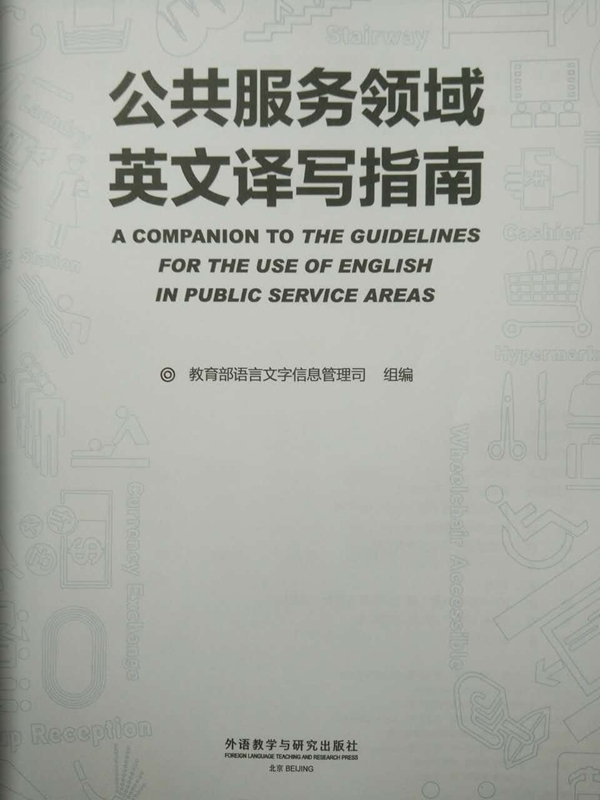Recently, Prof. Wang Yinquan from the Foreign LanguageCollege participated in researching, developing, compiling and finalizing A Companion to the Guidelines for the Use of English in Public Service Areas (abbreviated as The Guidelines), which has been officially released by Foreign Language Teaching and Research Publishing House. The Guidelines was written by the Chinese Government Language Committee and organized by the Department of Linguistic Information Management in the Ministry of Education. Prof. Chen Lin, one of the most famous foreign language educators, acted as the chief counselor, and Li Yuming, who was Executive Dean of Beijing Language Culture University and the former secretary of the Department of Linguistic Information Management was also a counselor in the process of compiling the work. Tian Lixin, Secretary of the Department of Linguistic Information Management in the Ministry of Education acted as director. The other members of the editorial board were from Beijing Foreign Studies University, Shanghai Foreign Languages University, Nanjing University, East China Normal University, Nanjing Agricultural University, and Shanghai Normal University.
A Companion to the Guidelines for the Use of English in Public Service Areas is the companion to Regulations for the Use of English in Public Service Areas According to National Standards£¨GB/T 30240£©. The Guidelines explains that the basic rules of public service translation, and it proposes formal translations of 3,700 public signs in a total of 13 service fields. The Department of Linguistic Information Management wrote A Companion to the Guidelines for the Use of English in Public Service Areas to promote the Regulations for the Use of English in Public Service Areas. This issue of The Guidelines can promote and facilitate the implementation of The Regulations for the Use of English in Public Service Areas. Moreover, it also made great academic contributions to foreign language policies and planning theory, applying the theory of foreign words and translation theory developments.
As of May 2011, the Ministry of Education and the National Language Committee were responsible for standardizing public service translation pertaining to Chinese international image and soft power. This standardization aims to establish rules and provide examples of English, Russian, Japanese and Korean translations of materials relevant to transportation, travel, cultural entertainment, sports, education, healthcare, sanitation, post services, telecommunications, food and drink, hotel accommodation, business and finance. Regulations for the Use of English in Public Service Areas—“Part 1£ºGeneral Rules” has been authorized by the General Administration of Quality Supervision, Inspection and Quarantine of P.R.C. and Standardization Administration of China to issue on December 31, 2013 and implement on July 15, 2014. Provisions regarding the aforementioned categories ( i.e. Transportation, travel, sports, etc.) have already been developed, examined and approved. They would be authorized by the General Administration of Quality Supervision, Inspection and Quarantine of P.R.C. and Standardization Administration of China. Wang Yinquan participated in the formation of these national standards and the development of the nine above mentioned category provisions. Additionally, he played a central role in the development of three of these provisions.
Foreign Languages College
